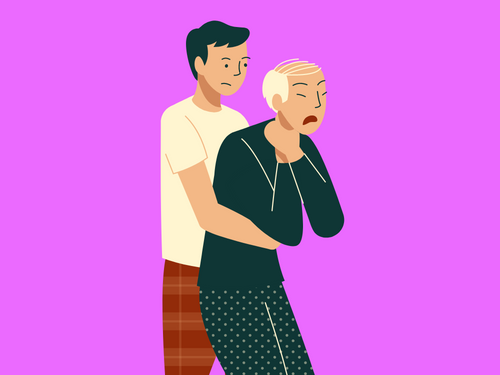In today’s digital age, teletherapy has emerged as a popular and convenient option for receiving mental health support. Also known as online counselling or virtual therapy, teletherapy allows individuals to access therapy services remotely using various communication tools such as video calls, phone calls, or messaging.
However, despite its growing popularity, teletherapy is still surrounded by several misconceptions that can prevent people from fully understanding its benefits and limitations. In this blog, we will demystify teletherapy by addressing common misconceptions and providing insights into the realities of online counselling.
Misconceptions of Online Counselling
- Online counselling is less effective than in-person counselling: This is a common misconception that assumes online counselling is less effective than traditional face-to-face counselling. However, research has shown that online counselling can be just as effective as in-person and, in some cases, even more effective.
- Online counselling is not confidential: Many people assume that online counselling is not confidential and that hackers or other unauthorised parties can easily access their personal information. However, online counselling platforms are designed to be secure and ensure client confidentiality.
- Online counselling is impersonal: Some people believe online counselling is impersonal and needs more human connection than traditional counselling. However, online counselling can be as personal and meaningful as traditional counselling, especially with video conferencing.
- Online counselling is only for people with mild problems: There is a misconception that online counselling is only suitable for people with mild emotional or mental health problems. However, online counselling can be effective for many issues, such as anxiety, depression, trauma, and relationship problems.
- Online counselling is expensive: Another common misconception is that online counselling is more expensive than traditional counselling. However, many online counselling platforms offer affordable services and may even be covered by insurance.
The Reality of Teletherapy
Online counselling, also known as teletherapy or e-therapy, has become increasingly popular due to its convenience, accessibility, and effectiveness. Here are some realities of online counselling:
- Effectivity: Studies have shown that online counselling can be as effective as in-person counselling for various mental health issues, including anxiety, depression, PTSD, and more. This is especially true when online counselling is conducted through video conferencing, allowing face-to-face interaction with a therapist.
- Convenience: Online counselling can be accessed from anywhere with an internet connection, which makes it much more convenient than traditional in-person therapy. This can be especially helpful for people living in rural areas or with mobility issues that make it difficult to attend in-person appointments.
- Confidentiality: Online counselling platforms are designed to be secure and protect client confidentiality. In fact, some online counselling platforms use advanced encryption and security measures to ensure that client data is kept safe.
- Accessibility: Online counselling can be a more accessible option for people who may be hesitant to seek out traditional counselling due to stigma or who may not have access to transportation or childcare. It also allows clients to choose from a broader range of therapists, including those who may not be available in their local area.
- Affordability: While the cost of online counselling can vary depending on the platform and the therapist, many online counselling platforms offer affordable services and some insurance plans may cover online therapy.
Overall, online counselling has many benefits and can be an effective and convenient option for people seeking mental health support. However, it’s important to note that online counselling may not be the best fit for everyone, and it’s essential to find a therapist and platform that meets your individual needs.
The Effectiveness of Teletherapy Compared to Traditional In-person Therapy
Numerous studies have explored the effectiveness of teletherapy compared to traditional in-person therapy, and the results have been generally positive.
Research has shown that teletherapy can be as effective as in-person therapy for many mental health conditions, including anxiety, depression, and PTSD. Additionally, some studies have found that teletherapy may even be more effective than traditional therapy in certain situations, such as for clients with physical disabilities or for those who have difficulty attending in-person appointments due to logistical or transportation issues.
While teletherapy may have some limitations, such as the lack of nonverbal cues or potential technical difficulties, it is clear that it can be a valuable and effective tool for those seeking mental health support.
Ultimately, the decision to pursue teletherapy or traditional in-person therapy will depend on individual preferences, needs, and circumstances, and both options should be considered viable choices for those seeking therapy.
Mental Health Issues that can be Addressed Through Teletherapy
Teletherapy can be used to address a wide range of mental health issues. This includes common issues such as anxiety, depression, stress and more complex conditions such as eating disorders. Teletherapy can also be effective in helping people cope with trauma, grief, and relationship problems.
Additionally, teletherapy is helpful for issues related to substance abuse, anger management, and behavioural concerns in children and adolescents. While teletherapy may not be suitable for all mental health issues, it can be an effective and accessible option for many people seeking mental health support. With the ability to connect with licensed therapists from the comfort of their own homes, clients can receive the care they need to improve their overall well-being and quality of life.
Considerations for Using Teletherapy
As we’ve discussed, teletherapy has gained widespread acceptance and proven to be a legitimate and effective mode of therapy. However, it’s also important to understand the realities of teletherapy to have a clear and informed perspective.
Here are some critical realities of teletherapy:
- Technical difficulties: Online counselling relies on technology, and technical difficulties can sometimes occur, such as poor internet connectivity or software glitches. This can disrupt the counselling session and may cause frustration or require rescheduling.
- Limited nonverbal cues: In online counselling, nonverbal cues such as body language and facial expressions can be more challenging to read, making it harder for the therapist to pick up on important cues or emotions.
- Distractions: Because online counselling sessions occur in the client’s environment, there may be more distractions than in a traditional therapy setting, such as family members or pets in the background or outside noise.
- Security concerns: While online counselling platforms are designed to be secure, there is always a risk of a breach in security, which could compromise client confidentiality.
- Not suitable for all issues: Online counselling may not be suitable for all mental health issues, such as severe and complex conditions requiring in-person care or individuals requiring a more intensive or structured form of therapy.
- Inadequate technology skills: Clients uncomfortable with technology or needing the necessary equipment or skills to participate in online counselling may find the experience frustrating or stressful.
Conclusion
Demystifying teletherapy involves dispelling common misconceptions and understanding the realities of this mode of delivering mental health care. While teletherapy may differ from in-person therapy, it can be as effective and beneficial when conducted using secure and encrypted platforms, following proper privacy protocols, and adapting to clients’ needs.
Teletherapy offers many advantages, such as increased accessibility, flexibility, and convenience, and can be a valuable option for individuals seeking mental health support.
It can be used for various therapeutic interventions, including individual therapy, group therapy, couples therapy, and crisis intervention. Teletherapy can also be amended to suit different populations, including adults, older adults, children, adolescents, and individuals with limited technology skills.
However, it is important to acknowledge that teletherapy may only suit some, and some may prefer or require in-person therapy. Therapists should carefully assess and discuss the appropriateness of teletherapy with their clients on a case-by-case basis.
As with any form of therapy, the quality of teletherapy depends on the competence and professionalism of the therapist. Therapists should ensure they use secure and encrypted platforms, follow ethical and legal guidelines, maintain client confidentiality, and adapt their therapeutic approach to the teletherapy format.
Teletherapy is a valuable and effective mode of delivering mental health care that has gained widespread acceptance, particularly during the COVID-19 pandemic.
By understanding the realities and dispelling misconceptions about teletherapy, individuals can make informed decisions about whether it suits their mental health needs. Therapists can also adapt their practices to provide effective teletherapy services and continue to meet the evolving needs of their clients in a rapidly changing technological landscape.






